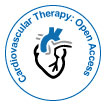Our Group organises 3000+ Global Conferenceseries Events every year across USA, Europe & Asia with support from 1000 more scientific Societies and Publishes 700+ Open Access Journals which contains over 50000 eminent personalities, reputed scientists as editorial board members.
Open Access Journals gaining more Readers and Citations
700 Journals and 15,000,000 Readers Each Journal is getting 25,000+ Readers
Indexed In
- RefSeek
- Hamdard University
- EBSCO A-Z
Useful Links
Share This Page
Yun CHEN

Yun CHEN
Research Assistant Professor
Albert Einstein College of Medicine
USA
Biography
I completed my PhD in molecular biology and reproductive immunology at the Institute of Zoology, Chinese Academy of Sciences in Beijing in July 2002. As part of my Ph.D. training, I identified rhesus monkey beta-subunit chorionic gonadotropin (rmCGβ). Subsequently, I developed a DNA vaccine for immune-contraceptive therapy based on rmCGβ, as well as explored the potential treatments for endocrine tumors using this DNA immune-vaccine. I pursued my postdoctoral training at UMDNJ-Robert Wood Johnson Medical School from August, 2002 to May, 2009. During my postdoctoral training period at the Cancer Institute of New Jersey, I focused on understanding transcriptional regulation of angiogenesis in endothelial cells, focusing on the cell growth arrest gene, Gax, which encodes an anti-angiogenic protein (Blood, 2008; 111(3): 1217-1226; Mol Cell Biol, 2010; 30(15): 3902-3912; J Biol Chem, 2007; 282(1): 507-517; Cardiovascular Research, 2010; 87(4): 723-731). From May, 2009, I started my early-career research as a senior scientist at Washington University School of Medicine under the guidance of Dr. Gerald Dorn. My research has focused on molecular mechanisms of mitochondrial apoptosis, necrosis and mitophagy in heart disease. Our work has revealed that the death-promoting protein Nix stimulates both apoptosis and necrosis death pathways, determined by its subcellular localization in the mitochondria versus ER (Proc Natl Acad Sci USA (feature article), 2010; 107(20): 9035-9042). To study the biological roles of the mitochondrial outer membrane fusion proteins Mfn1 and Mfn2 in the heart, we generated cardiac specific conditional knockout mouse models. Our results show that both Mfn1 and Mfn2 are essential in modulating mitochondrial fusion-fission remodeling, while only Mfn2, but not Mfn1, is critical for mitochondrial-ER Ca2+ flux, mitochondrial genomic integrity, and mitochondrial quality control. Phosphorylated Mfn2 is required for PINK1-Parkin mediated mitochondrial elimination (Science; 2013; 340: 471-475; Circulation Research. 2012; 111(7): 863-875; Circulation Research 2011; 109(12): 1327-1331). Our research findings have provided new insights into the understanding of diseases caused by dysfunctional mitochondria such as heart disease, Parkinson’s disease, aging and Alzheimer's disease. Currently I work at Albert Einstein College of Medicine as a Research Assistant professor. Our research is focusing on studying the mechanism of cell death (apoptosis, necrosis), mitochondrial related macro-autophagy and Chaperon-mediated autophagy (CMA), and the molecular mechanism of cardiac function protection in Chaperon-mediated autophagy deficient hearts.
Research Interest
My research interest is to understand the mechanism of autophagy, mitochondrial, and cell death in the heart, and to develop the treatment to reduce heart damage after heart attack.

 Spanish
Spanish  Chinese
Chinese  Russian
Russian  German
German  French
French  Japanese
Japanese  Portuguese
Portuguese  Hindi
Hindi